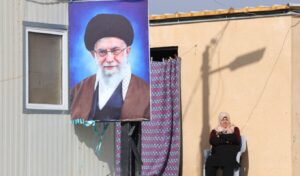Prince Al-Waleed bin Khaled bin Talal Al Saud of Saudi Arabia, known as the “Sleeping Prince,” passed away on July 20, 2025, at the age of 36, after nearly two decades in a deep coma.
His story had moved the international community, while his passing marked the end of a silent, yet prolonged battle for life. Since 2005 and the serious car accident he suffered in London, the then-young prince remained confined to mechanical life support.
Prince Al-Waleed bin Khaled bin Talal, known as Saudi Arabia’s “Sleeping Prince,” passed away at age 36 after remaining in a coma for nearly 20 years following a car accident in 2005. His condition was closely followed by the public and medical professionals, drawing global… pic.twitter.com/EA4RAqH4N0
— DNA (@dna) July 20, 2025
Saudi Arabia: The accident that changed everything for the “Sleeping Prince“
At just 15 years old, Al-Waleed was in the United Kingdom, attending a military academy, preparing for a future role of influence in Saudi Arabian political and social circles. A car accident with tragic consequences abruptly ended these plans.
The prince suffered severe traumatic brain injuries and internal bleeding. Despite medical interventions, his condition deteriorated and he eventually entered an irreversible coma.
Two decades on life support
Since then, he was hospitalized at King Abdulaziz Medical City in Riyadh, one of the region’s leading hospitals. His family—and especially his father, Prince Khaled bin Talal—stood by his side continuously, insisting on continuing mechanical life support, despite medical recommendations to the contrary.
Prince Khaled, brother of business magnate Al-Waleed bin Talal, never lost faith that his son could recover. For him, discontinuing life support would constitute moral surrender.
From symbol of faith to global reference point
The case of the “Sleeping Prince” transcended the borders of Saudi Arabia and occupied international media for years. His story became a catalyst for public dialogue around medical choices at the edge of life, the meaning of family devotion, and the role of religion in making such decisions.
In the eyes of public opinion, Al-Waleed became something more than a prince: a symbol of faith, moral endurance, and unconditional love.
The role of the royal family and the political dimension
The deceased was a member of one of the world’s most powerful dynasties. His father, Prince Khaled, holds a significant position in the Saudi Arabian elite, while his uncle, Prince Al-Waleed bin Talal, is internationally known for his business activities.
Al-Waleed’s case came to be added to the broader political and social context of reforms that Riyadh is pursuing. At a time when Saudi Arabia is trying to modernize its economy and open up to Western standards, the insistence on maintaining mechanical life support underscored the continued influence of religion and tradition in decision-making.
The human impact
News of his death caused a wave of emotion internationally. Beyond the medical nature of the case, the story of the “Sleeping Prince” served as a reminder of how a family’s love can overcome time, hope, and every logical probability.
As Saudi Arabia continues its journey toward modernization, the story of Prince Al-Waleed will remain a human monument to faith, love, and moral reflection. A narrative that, although it did not have a happy ending, touched thousands of people around the planet.




